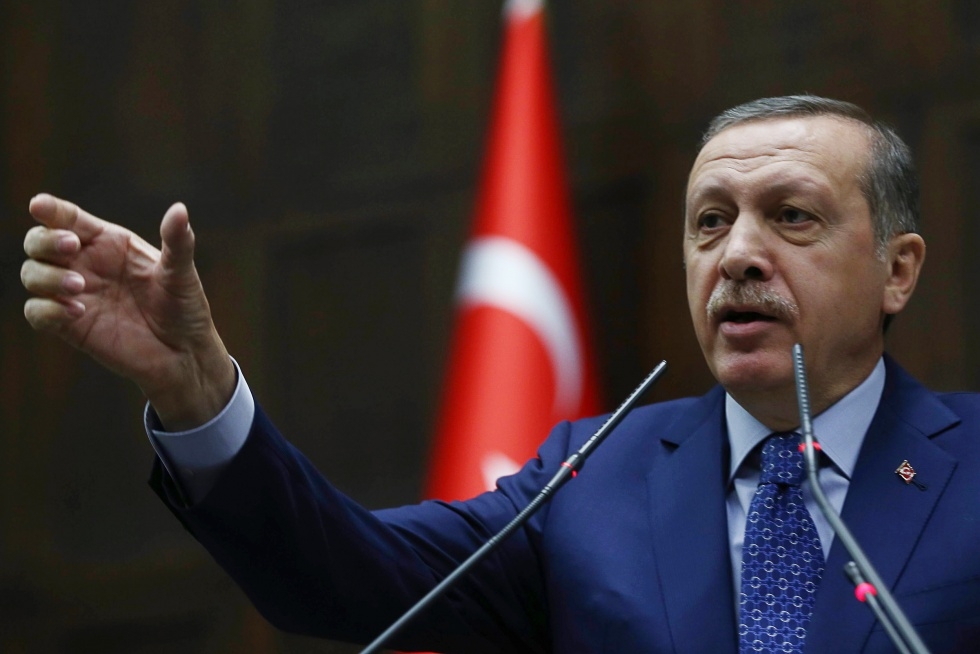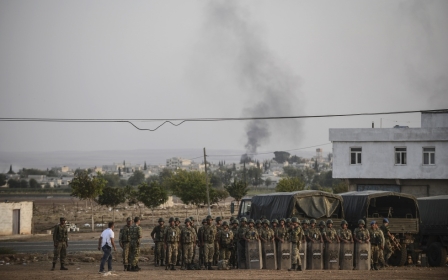The search for progress in EU-Turkish relations
Published date: 13 February 2015 01:30 GMT
|
Last update: 9 years 9 months ago
European Commission 'progress report' on Turkey's EU membership risks missing opportunity to overcome impasse

The Commission of the European Union is due to publish this week its annual "progress report" on Turkey’s bid to join the EU. This is the ninth year it has done so since formal accession negotiations were opened between Turkey and the EU in October 2005.
After such a long period, an EU candidate would normally have been admitted to the Union, and it would also have joined the Euro currency union. Not so Turkey,
Turkey embarked on the journey for EU membership in 1964, signing an association agreement, at the time clearly aimed at membership.
In the following decades, Turkey’s eligibility to be a member of the EU was repeatedly reaffirmed by European leaders in Brussels. But by 1999, when the EU had finally recognised Turkey as a candidate country, it was clear that a shadowy group of powerful figures at the top of the European Commission were implacably opposed to the idea of Turkish membership.
Aided by repeated mistakes, misunderstandings, and neglect on the Turkish side, and a growing lack of interest in the idea of EU membership at all, sceptics of Turkish accession have generally got their way in Brussels since then.
To join the EU, Turkey has to complete and adopt 35 chapters of the Acquis Communitaire. During the past decade, negotiations have been under way on just 14 chapters and only one has been signed. There can be no negotiations on 17 others because either the EU itself, or France, or the Greek Cypriot government, has blocked them.
When Turkey has been able to negotiate, EU officials say Ankara has usually been more prepared and able to move swiftly compared with some other candidates. It is for this reason that France and other countries have vetoed key chapters likely to lead to early membership.
This is because the economic hurdles to membership are no longer very great. The EU recognizes that at least half the chapters are "generally aligned with the acquis". The blockage is entirely political.
The deadlock has accelerated Turkey’s move away from the Western world and towards an anti-Western Islamic trajectory, a change that may in the long term have fateful consequences for Europe.
Deprived of a plausible vision of a future within the EU, Turkish students speak ruefully of their disappointment on international exchanges when they discover the extent to which they and their country are rejected by Europe. “I found myself on Erasmus [European Community Action Scheme for the Mobility of University Students] constantly having to argue with friends who told me that I was not a European, and my country was not in Europe as if they knew better than I did what I was,” a student told me.
For many young Turks this experience is profoundly bruising, especially for those who want their country to remain secular and part of the West.
To become eligible for its EU candidacy, Turkey - like all other candidates - had to slough off undemocratic political practices and conform to a set of democratic tests known as the Copenhagen Criteria, drawn up in 2002. One of the implicit questions in this week’s report will be whether Turkey, after a series of controversial commitments on freedom of expression, the Internet, the right to hold demonstrations, and Ankara's increasingly authoritarian government style, still satisfies these criteria.
The report is expected to use some harsh language but to take refuge in vague wording: that Turkey broadly meets the criteria.
Neither side wants to risk seeing the Turkish-EU talks broken off, even if Turkish accession is now considered by remaining Turkish Euro-enthusiasts as "a generation away". A rupture could damage Turkey’s economy and perhaps even propel it politically towards the Shanghai Cooperation Organization, headed by Russia and China, a non-Western grouping of which President Recep Tayyip Erdogan speaks admiringly. The secretary-general of the SCO, Dmitry Fedorovich Mezentsev, attended Erdogan's inauguration as president of the Turkish republic in August. There was no high-level European Commission visitor.
Turkish misgivings have been increased by the selection of Jean-Claude Juncker, the former Luxembourg prime minister, as the president-elect of the European Commission. Luxembourg, a country that supports a rapid move towards European federalism, was generally cold towards Turkey’s candidacy during terms as president of the Union.
Turks noted immediately that Juncker did not mention the Turkish candidacy in his initial instructions this autumn. Turkish hopes are pinned to a few slender pointers: Luxembourg now has an embassy in Ankara, and Juncker’s circle includes people who know the Turkish application well and are regarded as friends. Even so, he is unlikely to give a green light for progress on accession, particularly under Turkey's present authoritarian and increasingly Islamist conditions.
There is, however, one obvious area where Turkey and the EU could mend their relationship to the advantage of both. In 1996, after 25 years of preparation, Turkey signed with the EU a full customs union for industrial goods. Despite gloomy prognostications on both sides, it proved an unqualified success and, at least as much as AKP government economic policies, underlies Turkey’s robust economic growth after 2000.
But neither Turkey nor the EU has carried out the programme of reforms envisaged by the 1996 treaty. In any case, the customs union was designed as a step to political union that no one currently regards as possible.
The world trade environment for the customs union has changed, mainly to Turkey’s disadvantage as Ankara does not have a voice in the decision-making councils of the EU. New rounds of tariff negotiations between the EU and third countries make no provision for Turkey, and Turkish exports to these countries often have to pay tariffs of several percent tariff over the common external tariff. Turkey itself signed a commercial agreement with South Korea in July this year that is deeper than its customs union with the EU.
In a report published last March, the World Bank recommended that Turkey and the EU stop seeking a perfect customs union and instead take measures that would create deeper and wider integrations of their trade, something the Bank believes would benefit both sides.
It might also reduce the chances of political alienation. “Such a comprehensive approach would provide considerable benefits to both parties, whereas the status quo is fraught with increasing risks,” the Bank wrote.
Given the general impasse in Turkish-EU relations, this approach could be the most constructive way forward for the time being.
- David Barchard has worked in Turkey as a journalist, consultant, and university teacher. He writes regularly on Turkish society, politics, and history, and is currently finishing a book on the Ottoman Empire in the 19th century.
The views expressed in this article belong to the author and do not necessarily reflect the editorial policy of Middle East Eye.
Photo credit: President of Turkey, Recep Tayyip Erdogan
New MEE newsletter: Jerusalem Dispatch
Sign up to get the latest insights and analysis on Israel-Palestine, alongside Turkey Unpacked and other MEE newsletters
Middle East Eye delivers independent and unrivalled coverage and analysis of the Middle East, North Africa and beyond. To learn more about republishing this content and the associated fees, please fill out this form. More about MEE can be found here.





